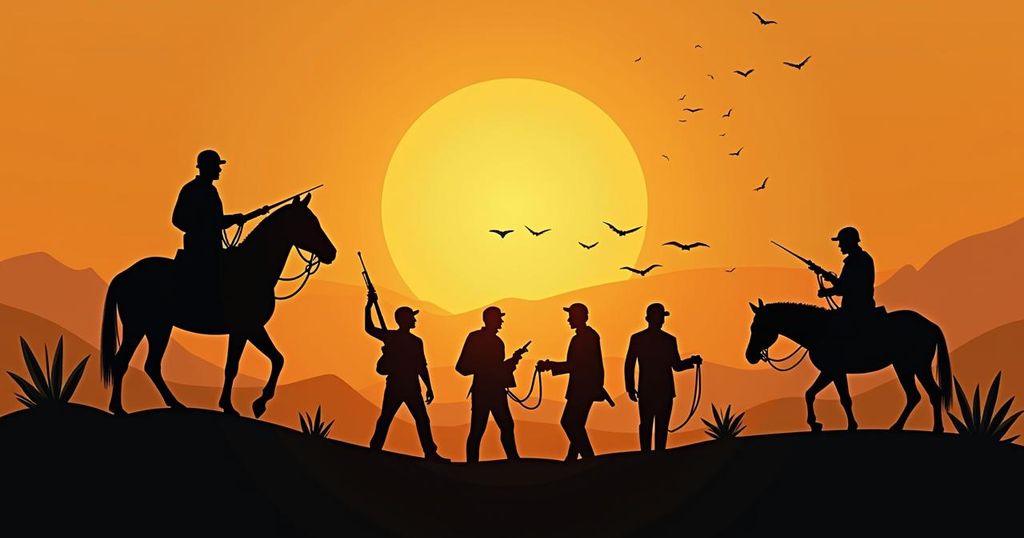Egypt has pledged to defend its rights to the Nile waters amidst conflicts with Ethiopia over the Grand Ethiopian Renaissance Dam. Foreign Minister Badr Abdelatty highlighted the need for equitable solutions while condemning unilateral actions by Ethiopia. He also expressed support for Somalia’s sovereignty and criticized the international community’s response to ongoing conflicts, advocating for UN reform.
In the midst of rising tensions with Ethiopia concerning the Grand Ethiopian Renaissance Dam (GERD), Egypt has made a resolute commitment to safeguard its rights over the Nile waters. Concurrently, Egypt has expressed support for Somalia’s sovereignty and territorial integrity against perceived threats from Ethiopia. Badr Abdelatty, the Minister of Foreign Affairs of Egypt, articulated the nation’s stance, emphasizing that Egypt’s motivations for resolving the Nile dispute are rooted in mutual benefit for all nations relying on the river without compromising the needs of the downstream countries. He accused Ethiopia of engaging in unilateral actions that contravene international law by advancing its projects without proper consultation with the nations sharing the Nile’s resources. Abdelatty expressed, “Anyone who thinks Egypt will compromise on any existential threat is mistaken,” referring directly to the implications of Ethiopia’s dam construction. Furthermore, Egypt lamented Ethiopia’s actions aimed at undermining Somalia’s sovereignty and raised concerns about international inaction regarding the Israeli-Palestinian crisis. Abdelatty advocated for reform within the United Nations, declaring that the current global governance system must evolve to effectively address global crises. He criticized the international community, stating, “Israel’s brutal aggression in Gaza and the West Bank has exposed the weakness and double standards of the international community. The legitimacy of the United Nations is at stake, and the global system needs reform to address the scale of challenges we face.” Abdelatty concluded by noting Egypt’s attempts to mediate conflicts in the region, specifically mentioning Egypt and Qatar’s roles in pursuing a diplomatic resolution to the Israeli-Palestinian tensions, which he claims were hindered by Israeli actions.
The Nile River is a vital resource for multiple countries in Northeast Africa, particularly Egypt and Sudan, along with Ethiopia, which is engaged in the construction of the Grand Ethiopian Renaissance Dam (GERD). This project has raised significant concerns for Egypt regarding water security and the potential impact on its agricultural and economic sectors. The dam has been a point of contention, leading to accusations of unilateralism against Ethiopia, which has proceeded with the project without thorough consultations with other Nile basin countries. Egypt’s positioning in this dispute is amplified by its geopolitical relationships, especially regarding its role in supporting Somali sovereignty amid Ethiopian threats. Additionally, Egypt’s critique of international responses to regional conflicts reflects its broader foreign policy interests, particularly concerning relationships with global powers and regional stability.
In summary, Egypt has reiterated its commitment to defending its rights over the Nile waters and supporting Somalia’s territorial sovereignty in light of escalating tensions with Ethiopia. Badr Abdelatty, expressing Egypt’s stance, condemned Ethiopia’s approach to the Grand Ethiopian Renaissance Dam as a violation of international norms. Furthermore, he emphasized the necessity of reform within the United Nations to enhance its effectiveness and address the pressing concerns of global conflicts. Ultimately, Egypt seeks to engage in a fair dialogue on Nile water management while standing firmly against external threats to its sovereignty and that of its regional allies.
Original Source: www.garoweonline.com






